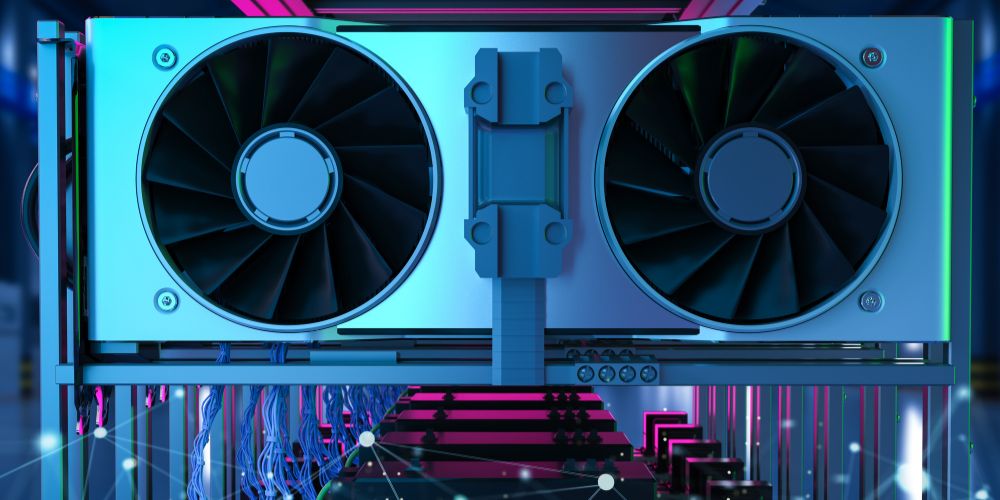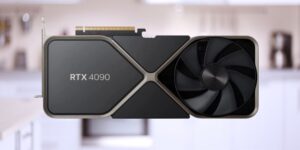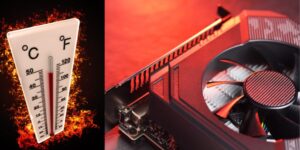Why Are My GPU Fans Always Spinning?
Have you ever wondered why your trusty GPU fans seem to have a penchant for constant spinning? The perpetual spinning of GPU fans can be a perplexing issue for PC users, indicating underlying concerns with cooling efficiency and system performance. When GPU fans continue to whirl constantly, regardless of workload or temperature, it prompts questions about potential hardware malfunctions, software misconfigurations, or inadequate cooling solutions. Understanding the reasons behind this persistent activity is crucial for maintaining optimal GPU function, noise levels, and overall system stability. This introduction sets the stage for exploring troubleshooting steps to identify and resolve the root cause of GPU fans that are always spinning. So today we’re diving into the world of GPU fans, deciphering the reasons behind their persistent spin, and shedding light on whether it’s normal or if there’s an underlying issue that requires your attention.
The GPU Fan: Your Graphics Card’s Cooling Crusader
The Purpose of Spinning GPU Fans
At the heart of your gaming rig lies a silent hero – the GPU fan. These compact yet powerful fans play a pivotal role in maintaining your graphics card’s optimal performance. Picture your graphics card as a high-octane engine; as it works hard to render lifelike visuals and mind-boggling textures, it generates a substantial amount of heat. Enter the GPU fan, whose primary mission is to keep the temperature in check.
Why Are My GPU Fans Always Spinning?
You might be wondering, “Why do my GPU fans seem to spin incessantly even when I’m not playing the latest AAA title?” Well, fret not, as this behaviour is often quite normal. Several factors contribute to this seemingly never-ending whir:
1. Thermal Management in Real Time
Modern graphics cards are designed with a sophisticated thermal management system. These smart systems constantly monitor the temperature of your GPU and adjust fan speeds accordingly. Even when you’re not actively gaming or using demanding applications, background processes can generate enough heat to warrant a bit of fan action.
2. Multitasking and Multimedia Of GPU Fans
Your trusty GPU isn’t just about gaming. It handles a plethora of tasks, from streaming high-definition videos to rendering complex visualizations. These tasks, while not as intensive as gaming, still require some level of GPU power, which in turn generates heat that prompts the fans to spin.
3. System Configuration and BIOS Settings
Your computer’s BIOS settings and GPU drivers can also influence fan behaviour. Manufacturers often preconfigure fan curves (speed settings based on temperature) that prioritize cooling over silence. While these settings are designed for safety, they can lead to fans running more often than you might expect.
When Should You Worry? Signs of Fan Abnormality
Now that we’ve established that some fan activity is completely normal, let’s talk about scenarios when those spinning fans might be trying to tell you something:
1. Intense Gaming Causes Sudden Spikes
If your GPU fans rev up to a jet-engine level during casual web browsing but remain subdued during gaming marathons, you might want to investigate further. Abrupt and excessive fan speed changes during different tasks could indicate a configuration issue.
2. Dirt and Dust in GPU Spinning Fans
Over time, dust and debris can accumulate on your GPU and its fans, hampering heat dissipation and causing fans to work overtime. If your fans seem unusually loud, it might be time for a thorough cleaning session.
3. The Dreaded Coil Whine
Sometimes, the culprit behind persistent fan noise isn’t the fan itself but rather the coil whine – a high-pitched sound caused by electrical components. While coil whine itself isn’t harmful, it can be bothersome. If you suspect this is the case, it’s wise to contact your GPU manufacturer for guidance.
Troubleshooting GPU Fans That Are Always Spinning
Troubleshooting GPU fans that are constantly spinning requires systematic steps to identify and resolve underlying issues:
- Check Temperature: Monitor GPU temperature using software like MSI Afterburner. High temperatures may force fans to spin continuously to cool the GPU.
- Update Drivers: Ensure GPU drivers are up to date. Outdated drivers can cause fan control issues.
- Adjust Fan Settings: Use GPU control software to adjust fan curves. Customize settings to balance cooling and noise levels.
- Clean Dust Buildup: Dust accumulation on GPU heatsinks can reduce cooling efficiency, causing fans to spin faster. Clean the GPU and surrounding components carefully.
- Inspect Cooling System: Verify that the GPU cooling system, including heatsinks and thermal paste, is functioning correctly.
- Check Case Airflow: Poor case airflow can elevate GPU temperatures, prompting constant fan operation. Improve airflow by adding case fans or optimizing existing setups.
- Reset Overclocking: If the GPU is overclocked, revert to default settings. Overclocking can increase temperatures, leading to continuous fan activity.
- Monitor Background Processes: Background applications may stress the GPU, resulting in constant fan spinning. Close unnecessary programs to reduce GPU workload.
- Consider BIOS Update: In some cases, a BIOS update may resolve fan control issues. Check the manufacturer’s website for updates and follow instructions carefully.
- Professional Assistance: If troubleshooting steps fail, consider seeking help from a technician or contacting the GPU manufacturer for support.
Conclusion:
In the grand orchestra of computer components, GPU fans are the rhythm section, keeping the beat and ensuring your graphics card doesn’t break a sweat. Understanding that a certain amount of fan activity is perfectly normal, even during non-intensive tasks, is essential for every tech-savvy individual. If those fans sound like they’re gearing up for liftoff during a casual YouTube session, don’t panic – just give your system a quick once-over and continue enjoying your digital adventures with newfound insight.
FAQs:
1. Are constantly spinning GPU fans a sign of a problem?
Not necessarily. Many factors, including background tasks and thermal management, can cause fans to spin even during light usage. However, persistent loud fan noise or unusual behaviour might indicate an issue.
2. Can I adjust my GPU fan settings?
Absolutely. Many graphics cards come with software that allows you to customize fan curves and performance profiles. Keep in mind that altering these settings can impact your GPU’s temperature and performance, so proceed with caution.
3. Should I worry about coil whine?
While coil whine itself isn’t harmful, it can be bothersome. If you suspect your GPU is producing coil whine, consider reaching out to your manufacturer for guidance. In some cases, they might offer a solution or replacement.
4. How often should I clean my GPU fans?
The frequency of cleaning depends on factors like your environment and usage. As a general rule, consider inspecting and cleaning your GPU and fans every few months to ensure proper heat dissipation.
5. Can high room temperatures affect GPU fan behaviour?
Yes, ambient temperatures can influence how often your GPU fans spin. If your room is particularly warm, your GPU might have to work harder to maintain optimal temperatures, leading to more fan activity.
Last Updated on 24 April 2024 by Ansa Imran

Ansa Imran, a writer, excels in creating insightful content about technology and gaming. Her articles, known for their clarity and depth, help demystify complex tech topics for a broad audience. Ansa’s work showcases her passion for the latest tech trends and her ability to engage readers with informative, well-researched pieces.







